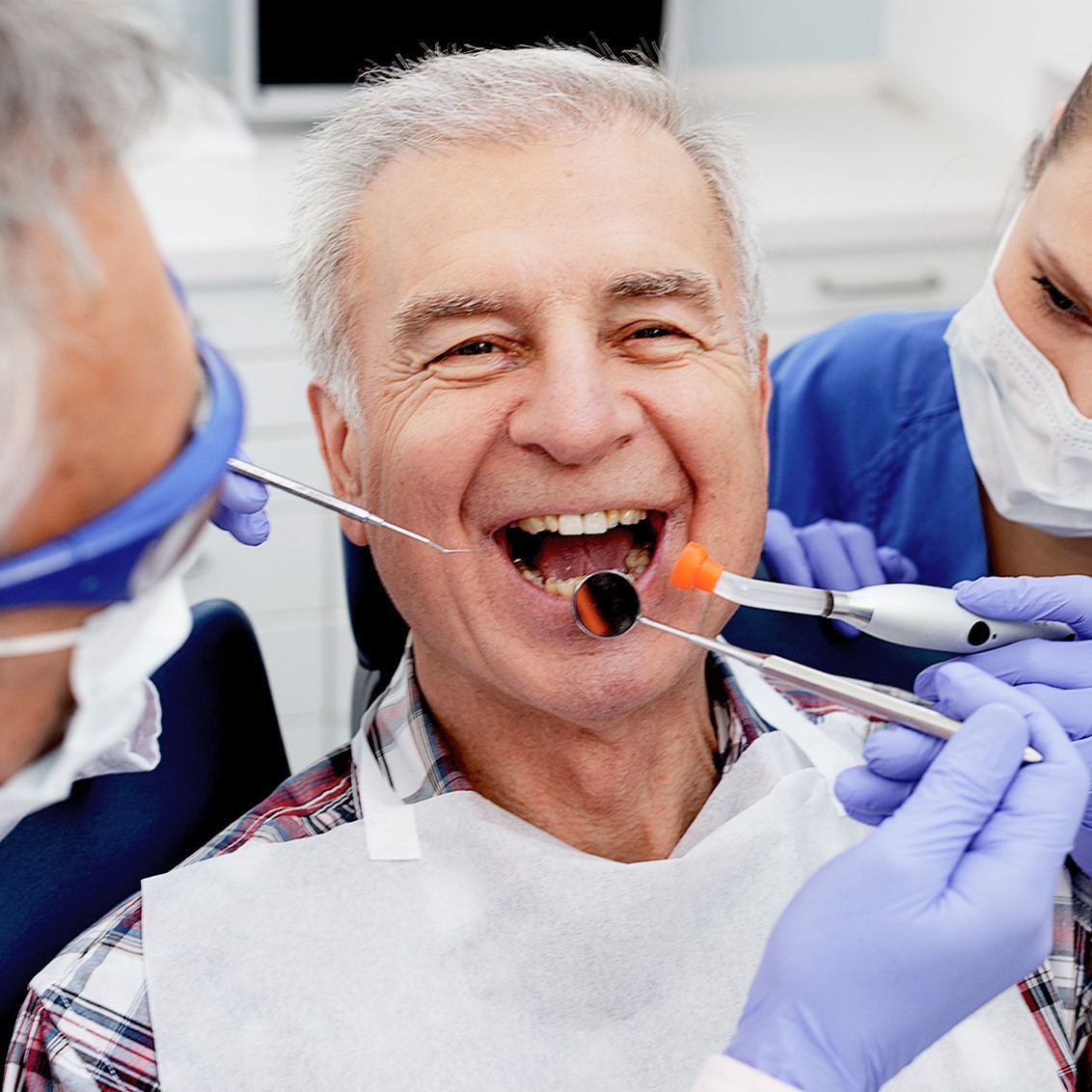
Oral cancer doesn’t get as much attention as other types of cancer, which can lead people to think it’s rare.
However, according to the Oral Cancer Foundation, an estimated 50,000 new cases were diagnosed in the U.S. last year alone. It’s most commonly found in people between the ages of 40 and 60, although recent studies suggest it’s becoming more common in younger people. The risk factors for oral cancer include tobacco and alcohol use and HPV infection.
There are also cases found in people with no risk factors. Doctors think these might have a genetic cause.
However, there is good news. As with all cancers, the best way to fight it is with early detection. In fact, the survival rate is as high as 90% with early detection. It’s recommended that everyone do a monthly self-exam for signs of oral cancer.
Although the following signs could be caused by many other conditions, some of the oral cancer signs to look for are:
- sores that bleed easily and do not heal
- oral tissue that has changed color
- a lump, thickening, small erosion, or rough spot
- pain or numbness
- difficulty moving the jaw or tongue
You are not alone in this fight, though. An important ally in finding oral cancer early is your dentist. A routine dental exam is no longer just about polishing your teeth and checking for cavities. Your dentist can also perform a yearly exam for signs of oral cancer. This simple tool for catching cancer early can be life-saving.
A regular dental check-up is an ideal opportunity for your dentist to examine your mouth. They have the perfect vantage point, tools, and lighting to observe all the parts of the oral cavity. During an oral cancer screening, your dentist will check the tissues for changes that indicate cancer, including salivary glands and those difficult-to-see areas under your tongue and in the back of your mouth. Dentists are very familiar with the tissues of the mouth, so they are able to spot abnormalities quickly. While performing a thorough exam for oral cancer, your dentist will also examine your neck to feel for enlarged lymph nodes and thyroid.
However, by some estimates, only 15% to 25% of patients are checked by their dentist for oral cancer. This is a lost opportunity. Because this screening is so non-invasive, and the potential benefit is so great, it is worth it to seek out a dentist who is familiar with the oral cancer screening process.
At Fisher Pointe Dental, we are committed to your oral health, from routine preventative care to skilled oral surgery. If we can help, please contact us.
